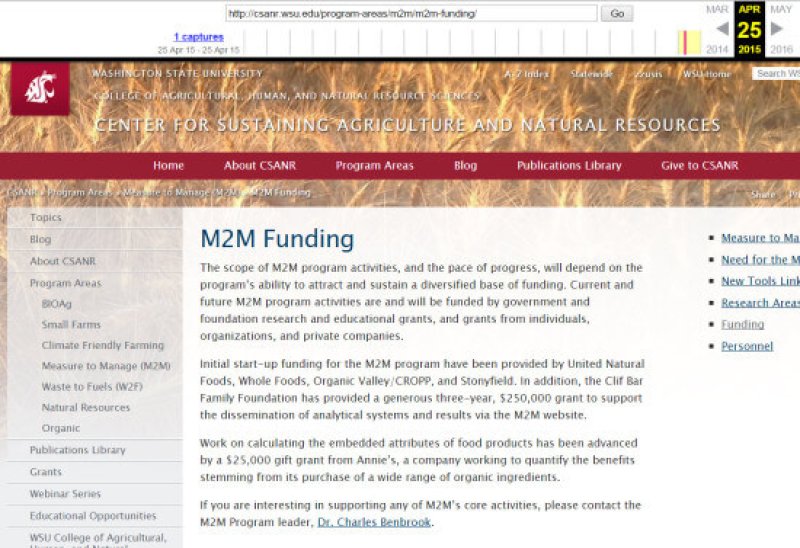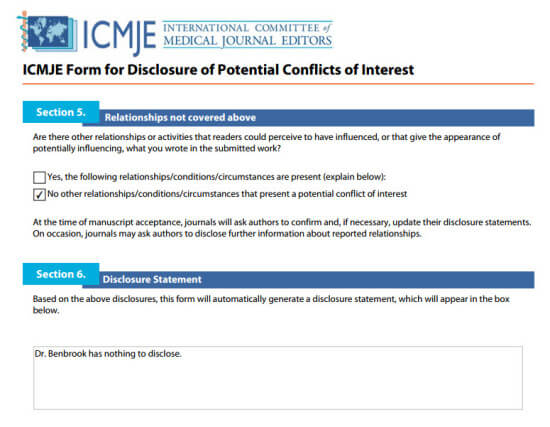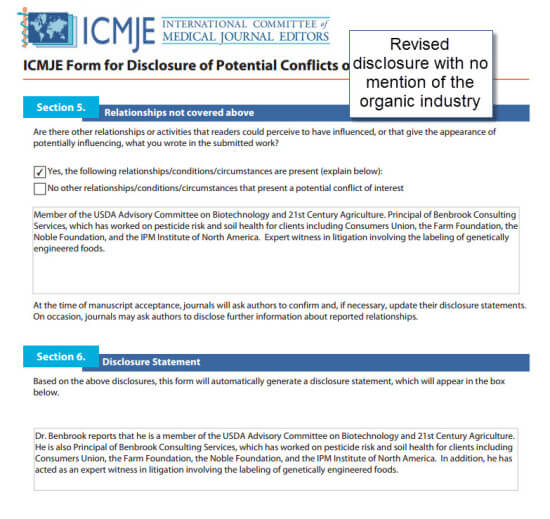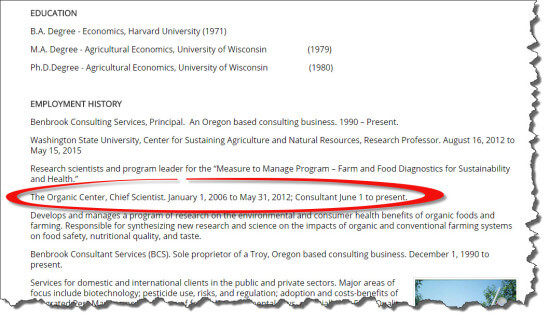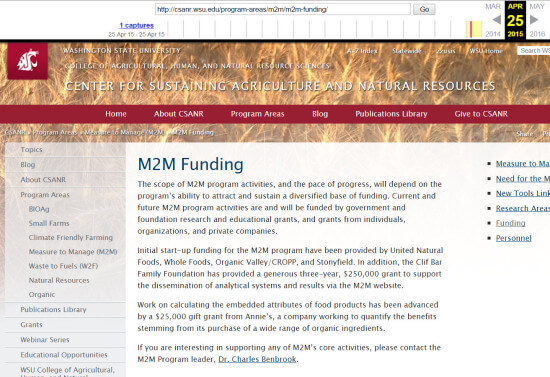The GLP aggregated and excerpted this blog/article to reflect the diversity of news, opinion and analysis.
[Editor’s Note: For more on the Benbrook scandal, read the GLP’s profile of the former Washington State University professor: Charles Benbrook: ‘Severed’ former Wash State organic consultant misrepresents conflicts in bungled NEJM piece]
The tale of transparency and conflicts of interest in science continued with an opinion piece on herbicide risks at the August 2015 New England Journal of Medicine where an organic farming expert consultant has co-authored a piece. Initially, Benbrook, co-author of the opinion piece, had nothing to disclose about his relevant associations:
He has since come forward with limited new information:
There is no recognition in these disclosures of any connections with the industry sector most involved in marketing their products with avoidance of herbicide use: The Organic Center, which is a part of the main organic industry lobby, the Organic Trade Association, highlighted in Benbrook’s own CV.
Further digging at Washington State University by the Genetic Literacy Project and GMO Pundit about Benbrook’s activities reveals what his limited conflict of interest disclosure at NEJM had left out — a lot in fact. He was appointed at WSU CSANR in August 2012 to run a new CSANR program Measure to Manage.
He pursued several activities that were previously described at the WSU website but recently pulled from that site by WSU. The funding for these activities was primarily from the commercial organic sector. Although the funding records were removed last week from the WSU server, they were captured in April 2015 by the Wayback Machine:
Benbrook drew grants from organic food sector companies to research issues that were fundamental to their marketing strategy. The companies include Whole Foods, Stonyfield, Organic Valley and United Natural Foods. It involved a salary for Benbrook of $128,333 in 2013.
But even under pressure to be more transparent, Dr. Benbrook does not reveal it to the New England Journal of Medicine after writing on opinion piece on GMOs and herbicides that directly supports the organic food sector’s marketing and premium pricing strategy .
Where does NEJM sit now?
Read full, original post: UPDATED Conflicts of interest denouement at New England Journal of Medicine – don’t mention the word #organic

